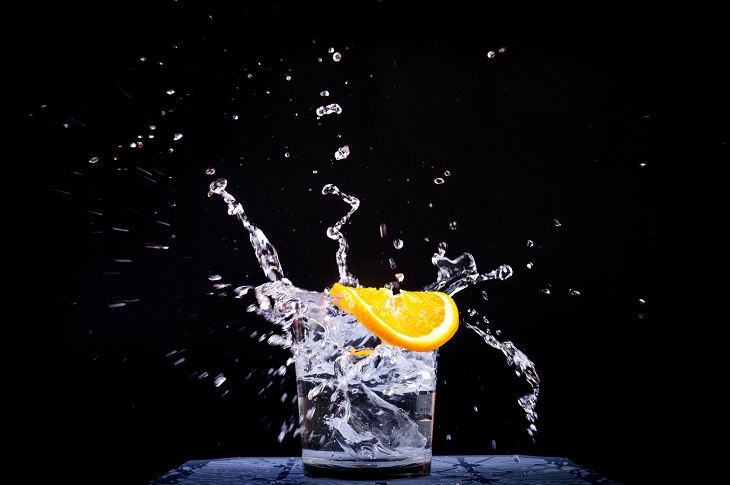THE DAILY DOSE
What Proper Hydration Does For The Body

The human body is made up of roughly 60% water. From this figure, it can be generally assumed that water is pretty important when it comes to overall health. The role of water within the body isn’t assigned to one process, but rather all the processes that occur in organs, tissues, muscles, and even bones.
The entire body depends on hydration to be able to sustain its level of health, and without enough water, things can begin to malfunction. But what does hydration really mean, and why is it so important? Let’s investigate what proper hydration does for the body.
What is hydration?
A hydrate is something that contains water or similar elements. These hydrates are found in copious amounts in the human body. Cells, tissues, and organs are full of hydrates; this is why water makes up so much of the human body.
Hydration simply means every hydrate within the body is stable, or has the appropriate amount of water to maintain its structure. When the water molecules in each specific atom are forced out, whether it be through sweat, tears, or urination, the body begins to lose the balance of water it needs. When this isn’t counteracted with taking in enough fluids, the body becomes dehydrated.

Why is hydration important?
Hydration plays a role in every bodily system. If organs such as the lungs, heart, and skin are not hydrated enough, they begin to malfunction. In the case of the heart, blood circulation begins to suffer; when the lungs aren’t getting enough, they can thicken and become sticky, leading to increased vulnerability to illness and the slowing of respiration. Dehydrated skin can become dry, itchy, dull, and lifeless. Severe fluid loss can even lead to a loss of consciousness, because the body can’t handle itself without proper hydration.
Water can also act as a solvent to help dissolve certain materials within the body. Things such as nutrients, vitamins, and even salt need to be dissolved so they can move freely to where they need to go. Body temperature regulation is also heavily reliant on the amount of water one has in their system, and when dehydration sets in it can lead to fever-like symptoms as well as hypothermia. Water also plays a key role in things such as the prevention of infection, sleep quality, and brain health.
What are the benefits of hydration?
The benefits of staying hydrated are vast. Physical performance, for example, is one area where hydration is vital. While the body moves, it begins to lose water through sweat, and those water stores need to be replenished. A person only needs to lose as little as 1–2% of their body’s water stores before it becomes a hindrance on physical performance by stalling temperature regulation and encouraging the onset of fatigue.
Hydration is equally important for brain function. Following the loss of water, the brain becomes impaired, but when hydration is continuous, things like mood, concentration, and other cognitive abilities are sharper. Staying hydrated can also reduce the amount of headaches a person gets.
Digestion is also heavily reliant on the amount of water a person has in their system. Water is needed to help break down food properly for the absorption of nutrients. It can also help with colon health by giving the intestines enough fluid to help pass stools.
The joints, too, need their fair share of H20 to function properly. Cartilage is made up of 80% water, and it needs to fluid to help absorb shock from movement in the joints. Having proper hydration can contribute to optimal joint health.
Other benefits of staying hydrated include the following:
- Proper oxygen circulation throughout the body via the blood
- Skin health
- Cushioning for sensitive tissues such as the spinal cord
- Flushing waste from the body
- Helping the kidneys regulate fluid throughout the body
To put it simply, water is a vital component to the health of every part of the human body and plays a role in every system, function, or movement.

Tips for staying hydrated
It might be hard for some people to stay hydrated throughout the day, depending on how much water they lose, how much they drink, and their own personal lifestyle choices. However, there are some easy tips that can be implemented to help you stay hydrated.
Start your day off with a glass of water
Skip the coffee first thing and have water. It will set you up for hydration success throughout the day (and you can always get your caffeine afterwards!).
Keep water on hand at all times
It might be cumbersome to carry around a water bottle everywhere, but it’s important to always have access to fluids. Pick a bottle that you like and keep it with you everywhere you go.
Add some flavor
Sometimes the taste of water is what turns people off. Infuse your water with some fresh or frozen fruit and it’ll taste better.
Eat your water
You don’t have to be sipping water all day long to stay hydrated. There are plenty of foods that the body can pull fluids from, such as cantaloupe, strawberries, spinach, and watermelon.
Since staying hydrated is crucial, it’s important to find a way to do it that works for you and stick with it. If you become dehydrated, your body will suffer, so be sure to find a way to get into good hydration habits and stick to them.
Featured image by Nigel Msipa on Unsplash